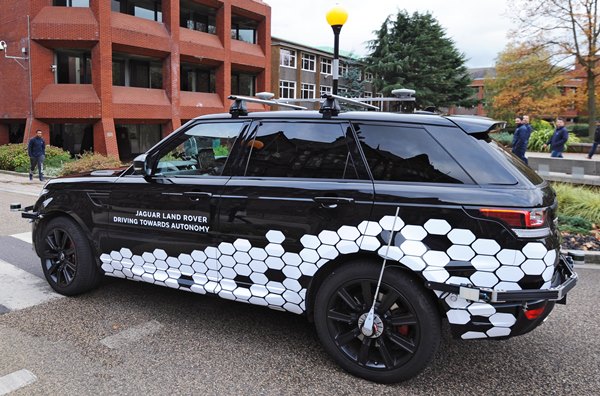- Сникерсы кроссовки на высокой платформе с танкеткой чёрные деми — цена 1199 грн в каталоге Сникеры ✓ Купить женские вещи по доступной цене на Шафе , Украина #107726991
- The Global Destination For Modern Luxury
- air jordan 1 low outlet
- Nike Giannis Immortality 3 - Nike Jordan Sport DNA Svarta mjukisbyxor i fleece med heltäckande logga - RvceShops
- Super Max Perfect Air Jordan 5 Women
- air jordan xxxv cq4227 004
- Air Jordan 1 Satin Black Toe CD0461 016 2019 Release Date 4
- eastbay restock large amount air jordans
- Miles Morales Shameik Moore Air Jordan 1 Spider Verse
- air jordan 4 og fire red DC7770 160 release details price
- Home
- News and analysis
- Info hubs
- Events
- Video
- Case Studies
- About us
- Magazine
- Advertising
Produced for the industry by the Association for Consultancy and Engineering
News
Big advances made in autonomous cars as testing enters final year

Massive strides are being made in delivering a future where driverless cars become the norm, according to one of the men at the forefront of a three-year testing program which some of the UK’s biggest car manufacturers have been involved in.
Tim Armitage, Arup’s UK Autodrive project director, has been at the centre of the engineering and consultancy firm’s testing from day one and now, two years into the program, Armitage has revealed that testing in Coventry earlier this year has been more valuable than anyone first anticipated with cars clocking up the miles across the city.
The involvement of Britain’s biggest car manufacturer, Jaguar Land Rover, is a clear indication of how determined it is for the country to play a leading role in the race to develop autonomous vehicles. The autumn testing is the first time it has played an active part on open roads with previous driverless cars confined to closed roads and tracks or only used on open roads for short demonstration periods.
UK Autodrive trials are exploring the benefits of having cars that can “talk” to each other and their surroundings - with connected traffic lights, emergency vehicle warnings and emergency braking alerts. The vehicles rely on sensors to detect traffic, pedestrians and signals but have a human on board to react to emergencies. The trials are testing a number of features and most importantly seeking to investigate how self-driving vehicles interact with other road users and how to replicate human behaviour while driving.

“The testing in Coventry was a big leap forward and potentially bigger than we ever expected,” Armitage said. “A lot of the testing was very complex and we covered a lot of miles in the city. We learnt a massive amount about the cars and it proved to be massively valuable. The fundamental purpose of testing is to get connected and autonomous vehicle technology out onto UK roads, so the start of trialling on the streets of Coventry is clearly a major landmark both for the project and for the UK as a whole. Our previous private test track trials showed that the technology works but it is only on real roads that we will start to see the scale of the benefits that it can bring.”
Further trials are scheduled to take place in Coventry and Milton Keynes early next year followed by a final series of open road demonstration events in both cities during the second half of 2018. Testing later this year will provide innovators with more information in relation to how vehicles are able to manage roundabouts and the amount of “aggression” needed for them to successfully pass without accident.
"The start of trialling on the streets of Coventry is clearly a major landmark both for the project and for the UK as a whole."
Tim Armitage, UK Autodrive project director.
The £19m programme in Coventry is timely, with Philip Hammond revealing a £500m injection into electric and driverless cars in his autumn budget. The chancellor has spoken about the government’s desire to have "fully driverless cars" without a safety attendant on board in use by 2021. Armitage has welcomed the announcements back in November and commends ministers on their commitment to the technology and for being “consistent” with what they have pledged over the years. Highways England in December also announced plans for wireless internet to be potentially installed across 4,000 miles of UK roads as part of government ambitions.
“Highways England is clearly aware of the importance of good communications environments to the development and adoption of connected and autonomous vehicles,” Armitage said. The recently published Highways England Strategic Road Network Initial Report is another welcome indication of the level of support and seriousness of the UK government’s continued commitment to the development and deployment of connected and autonomous vehicles. Certain levels of connection and autonomy are possible with the existing communications network, however, full functionality and operation will be dependent upon a secure and consistently available network.”
Although there is a push to adopt the new technology, Armitage concedes that some people will take time to accept change. “It’s a reasonable reaction for people to be anxious about change, especially for those in jobs that will be directly affected,” he added. “While it might be a short-term worry for people who are driving trucks for example, the technology will actually help companies who are really struggling to recruit truck drivers in the long-term.”





